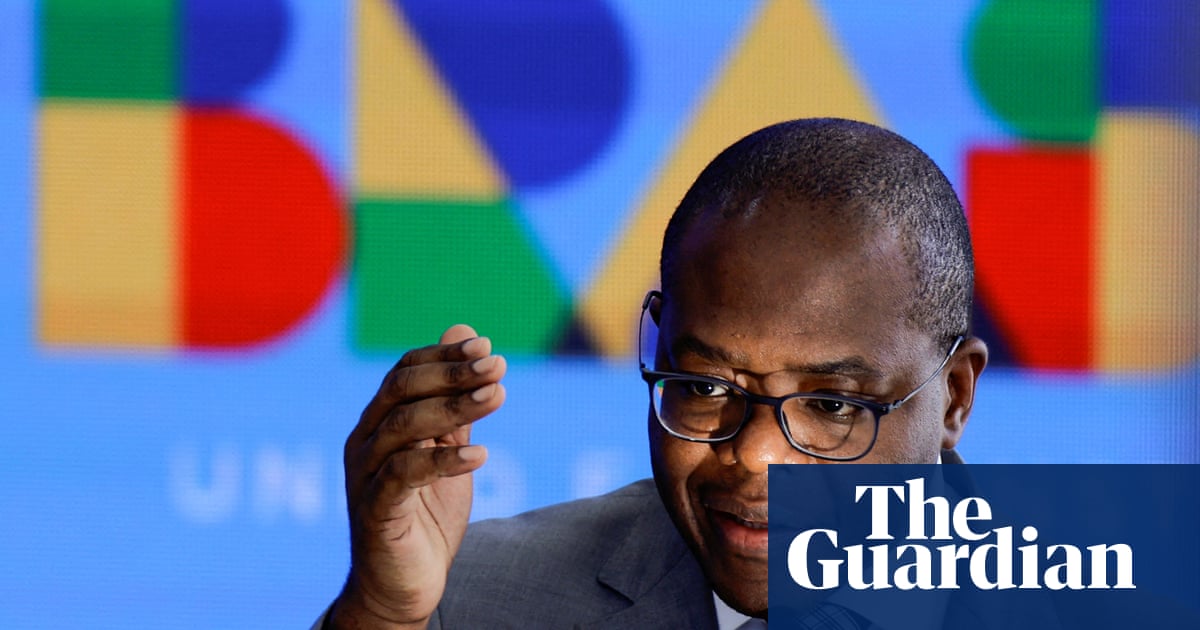
Brazil’s president has sacked one of his most popular cabinet members after claims Silvio Almeida sexually harassed at least two women – one of whom is another prominent figure, the racial equality minister Anielle Franco.
Almeida, the human rights minister, has denied the allegations, while Franco thanked President Luiz Inácio Lula da Silva for his “decisive action.” But the scandal has dealt a major blow to Luiz Inácio Lula da Silva’s administration and has been greeted with deep dismay by the Black rights movement.
Almeida and Franco are among the leading voices in the fight against racism in Brazil. Both were also among the prime targets of attacks from supporters of the far-right former president Jair Bolsonaro since the start of Lula’s administration in January 2023.
In the statement released Friday evening, Lula said: “In light of the serious allegations against minister Silvio Almeida and after calling him in for a discussion … [I] decided to dismiss him.”
The president added that maintaining Almeida became “untenable given the nature of the sexual harassment accusations”.
“The federal government reiterates its commitment to human rights and reaffirms that no form of violence against women will be tolerated,” the statement concluded, also reiterating that the federal police were investigating the case.
Franco, the minister for racial equality, who entered politics after the 2018 murder of her politician sister Marielle Franco – one of the most shocking and high-profile murders in Rio de Janeiro’s history – spoke out about the case for the first time about an hour after Lula announced his decision.
Franco wrote on her social media that “it is not acceptable to relativise or downplay episodes of violence”, adding that “attempts to blame, discredit, coerce, or pressure victims to speak during moments of pain and vulnerability are also inappropriate, as they only perpetuate the cycle of violence.”
The case came to light on Thursday when the Brazilian news site Metrópoles reported that Almeida had been reported to Me Too Brasil, an organisation that defends female victims of sexual violence, “for alleged incidents of sexual harassment against women”.
The report did not specify the number of alleged victims but claimed Franco was among them – something later confirmed by other Brazilian media outlets. A day before, the news site UOL reported that Almeida had been facing allegations of bullying among the ministry’s staff.
Metrópoles claimed that the alleged harassment towards Franco by Almeida included “touching her legs”, “inappropriate kisses during greetings”, and the use of “vulgar expressions with sexual content”.
All incidents are said to have occurred last year and were reported to other ministers, as well as the first lady, Rosângela da Silva, known as Janja, who is Franco’s friend. Despite this, no action appears to have been taken, prompting criticism of the government after the accusations became public.
Hours after the scandal broke, Janja posted a captionless photo on social media, in which she kisses Franco on the forehead – something widely interpreted as a gesture of support.
The minister for women, Aparecida Gonçalves, was more direct: she posted a photo holding hands with Franco, accompanied by the caption: “My solidarity and support to you, my friend and ministerial colleague, during this difficult time.”
Me Too Brasil released a statement on Thursday confirming it had received the allegations against Almeida, but did not disclose how many or the names involved. “The victims faced difficulties in obtaining institutional support to validate their allegations,” the organisation said.
On Thursday, Almeida swiftly posted a video on his social media in which he declared: “I want to … vehemently reject the lies and falsehoods being hurled at me.”
He claimed: “It is evident that there is a very well-orchestrated campaign to damage my image as a Black man, as a human rights advocate, and as someone in a prominent public position.”
While still in office, Almeida used the ministry’s official social media accounts to attack Me Too Brasil, claiming that the organisation’s modus operandi often involved “anonymous, unfounded, and baseless accusations”.
A prominent academic and bestselling author who popularised the concept of “structural racism” in Brazil, Almeida entered politics less than two years ago when Lula invited him to be human rights minister.
While in the post, he was praised by sections of the left as one of the few ministers who managed to steer Lula’s Workers’ party (PT) back toward its progressive roots.
In March, when Brazil marked the 60th anniversary of the start of a brutal two-decade dictatorship, Almeida was a lone voice calling for events to honour the thousands who were killed, disappeared or tortured by the 1964-85 regime. Lula prohibited any such commemorations, seemingly to avoid upsetting the military.
Since the allegations against Almeida emerged, members of numerous Black rights organisations have expressed deep dismay. The Black Coalition for Rights, an alliance of about 300 black movement organisations and entities, issued a “statement of solidarity with minister Anielle Franco and other female victims” with the hashtag #AnielleNãoEstáSó (Anielle is not alone).
Without naming Almeida, the statement demanded a “thorough investigation of the facts, with due accountability for those found guilty and also for those who failed to act in the face of these extremely serious allegations”.
Allies and supporters of Bolsonaro have been celebrating the case as a supposed example of leftwing hypocrisy – and even making jokes about the alleged harassment – since Thursday. One of the leading figures of the far right, congressman Nikolas Ferreira, joked on X, which is now banned in Brazil, that the “government of love [as Lula has described his administration] is loving a bit too much”.
Source: theguardian.com



